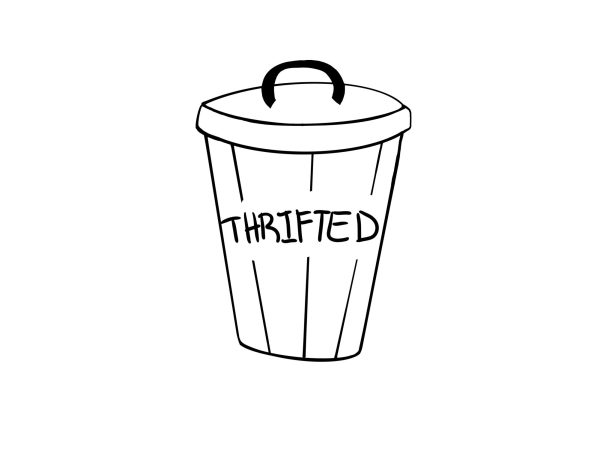XOXO Gossip… is actually good?
March 2, 2022
Gossip. Whether it be with your friends around the lunch table or in the family group chat, we all do it. Despite it being human nature, our society tends to frown upon gossiping, likely because we have only been taught one version of it. As we grow up, we see gossip within our families and friends as well as through the media. These outlets continue to depict gossip in ignorant ways, usually through degrading, superficial fights between fictional characters such as in “Mean Girls” and “Gossip Girl.” Because of this cultural upbringing, gossip has become known as a harmful and negative activity. However, we should not be so quick to deem gossip as completely detrimental. In reality, gossip can be beneficial in kindling human connections and holding people responsible for their actions.
Evolutionary and anthropologic psychologist Robin Dunbar focuses on this concept in her book titled “Grooming, Gossip, and the Evolution of Language.”
“Idle chatter with and about others gave early humans a sense of shared identity and helped them grow more aware of their environment, thus incubating the complex higher functioning,” Dubar said in her book.
The unique ability of people to create a communal identity through gossip is ongoing. A study conducted by the University of Texas and the University of Oklahoma found that if two people share negative feelings about an additional person, they are likely to feel closer to each other rather than if they both felt positively about that person. While negative gossip should not be encouraged, the benefits to it may outweigh the moral implications; individuals are able to develop more profound camaraderie through gossip. They get to know one another on a more intimate level by connecting through their view on society and their community.
Not only does it foster relationships, but gossiping can also enable people to grow and mature. Researchers Roy Baumeister and Liqing Zhang reported in the journal “Review of General Psychology” that gossip encourages reflection among research subjects. The results suggested that “positive gossip inspired self-improvement efforts.” Positive gossip can be defined as conversations that involve prosocial behavioral responses. For example, if a person shares information that is beneficial to the group as a whole and can help them in some way, then this is a form of positive gossip. The study also uncovered that hearing negative gossip often leads people to learn lessons from the situation. This promotes accountability and self-reflection across different communities. If someone is hearing gossip about themselves, they are likely to become more self-aware of their actions, encouraging a culture of self-resilience. Being a victim of negative gossip may have advantages on your future self.
Jared Piazza and Jesse M. Bering, two researchers evaluating evolution and human behavior, found that the fear of an influx of gossip that could ruin an individual’s reputation encouraged increasingly generous and cooperative behavior within the social setting. The results indicate that if individuals know that gossiping is a consequence of their actions, they will be more aware of what they do, allowing for a more development conscious to guide them in the right direction. According to an NPR poll 97% of people believe that gossip is the most inappropriate office/workplace behavior. Gossip’s negative reputation people will most likely refute gossip’s benefits as its notoriety comes predominantly from the perception that all gossip is inherently cruel and meant to hurt someone. Negative gossip can be extremely hurtful if it becomes a constant pattern that leads to bullying. It could be argued that gossiping in a bad light can also lead to more drama among groups of people and become all fronts. Talking behind people’s back in a mean way is incredibly unhelpful to any situation and distracts from the real productivity that positive gossip can have.
However, in a 2019 meta-analysis published in the journal “Social Psychological and Personality Science,” Robin Dunbar and her colleague found that during the average 52 minutes of the day spent gossiping, three-quarters of the gossip was neutral. Therefore, most gossip that occurs on a daily basis is neither negative nor positive, but simply a circulation of information about a person or event.
If gossiping can increase the spread of information within communities, it can teach younger generations useful lessons from an early age on how to act behaviorally. Children can begin to analyze different social situations better by becoming aware of their moral compass and societal norms.
To have a well-functioning society, we must be able to engage in thoughtful conversations that generate different perceptions and opinions. Gossip allows for these conversations to be held by encouraging the heightened spread of new information.
Anyways best of luck on your gossiping journey, keep it positive… XOXO gossip girl.






















